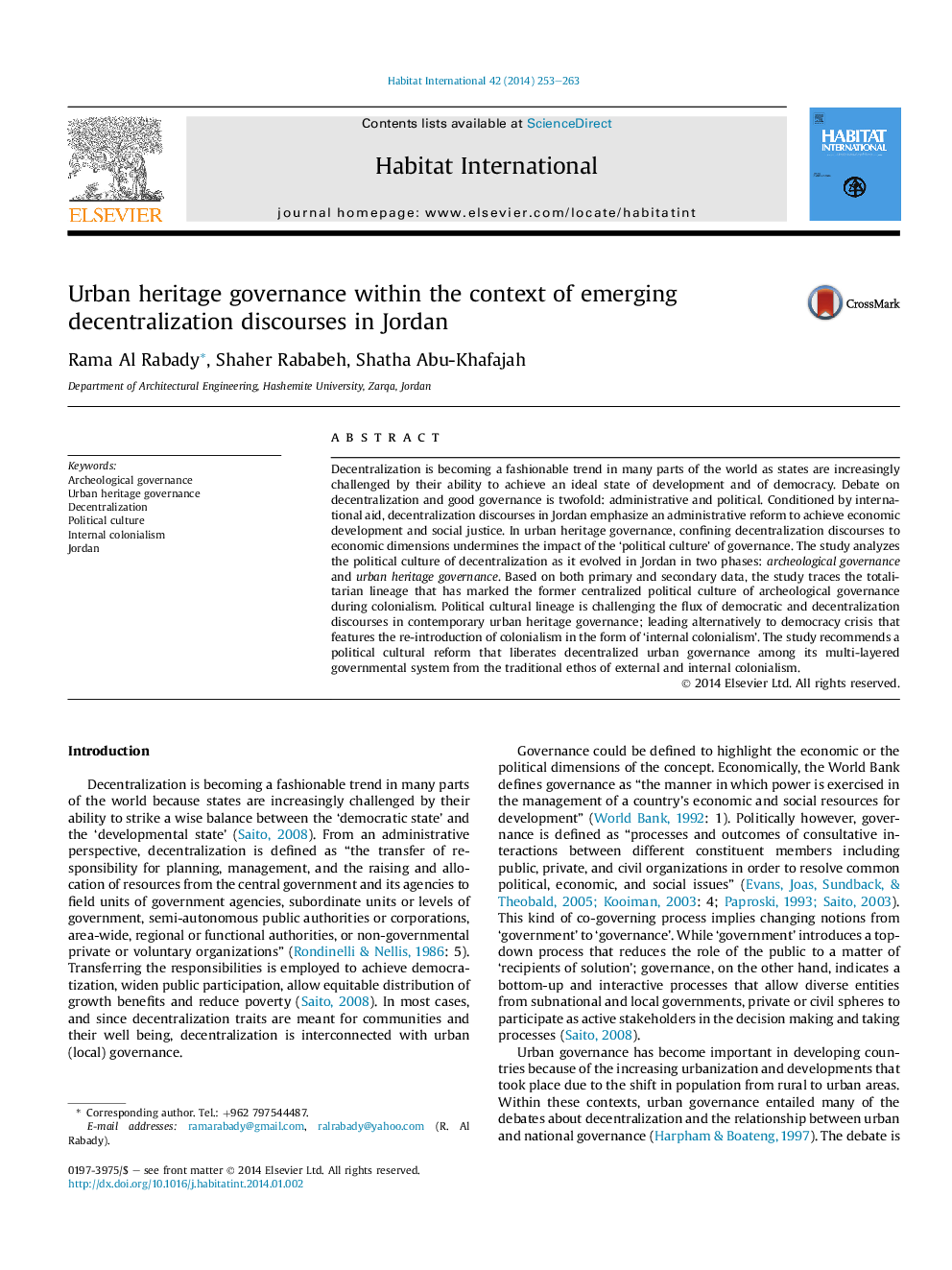| Article ID | Journal | Published Year | Pages | File Type |
|---|---|---|---|---|
| 1047980 | Habitat International | 2014 | 11 Pages |
•Discourses on decentralized urban governance are administrative and political.•Decentralization in urban governance in Jordan is administrative, economic driven.•Impacts of unstable political reform and colonialism are not acknowledged.•Re-introduction of colonialism in the form of ‘internal colonialism’.•Liberating decentralized urban governance from internal and external colonialism.
Decentralization is becoming a fashionable trend in many parts of the world as states are increasingly challenged by their ability to achieve an ideal state of development and of democracy. Debate on decentralization and good governance is twofold: administrative and political. Conditioned by international aid, decentralization discourses in Jordan emphasize an administrative reform to achieve economic development and social justice. In urban heritage governance, confining decentralization discourses to economic dimensions undermines the impact of the ‘political culture’ of governance. The study analyzes the political culture of decentralization as it evolved in Jordan in two phases: archeological governance and urban heritage governance. Based on both primary and secondary data, the study traces the totalitarian lineage that has marked the former centralized political culture of archeological governance during colonialism. Political cultural lineage is challenging the flux of democratic and decentralization discourses in contemporary urban heritage governance; leading alternatively to democracy crisis that features the re-introduction of colonialism in the form of ‘internal colonialism’. The study recommends a political cultural reform that liberates decentralized urban governance among its multi-layered governmental system from the traditional ethos of external and internal colonialism.
